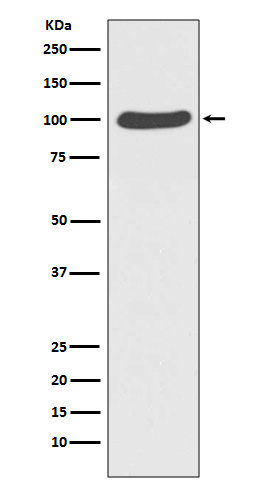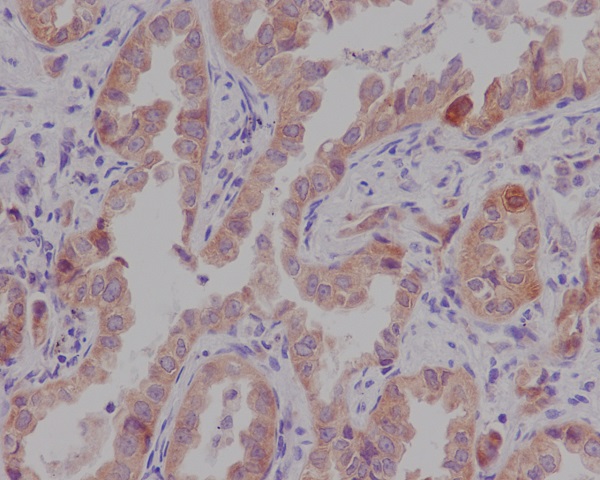

| WB | 1/500-1/1000 | Human,Mouse,Rat |
| IF | 1/20 | Human,Mouse,Rat |
| IHC | 1/50-1/100 | Human,Mouse,Rat |
| ICC | 1/50-1/200 | Human,Mouse,Rat |
| FCM | 1/50-1/100 | Human,Mouse,Rat |
| Elisa | 咨询技术 | Human,Mouse,Rat |
| Aliases | Catenin alpha-1; Alpha E-catenin; Cadherin-associated protein; Renal carcinoma antigen NY-REN-13 |
| Entrez GeneID | 1495 |
| WB Predicted band size | Calculated MW: 100 kDa; Observed MW: 100 kDa |
| Host/Isotype | Rabbit IgG |
| Antibody Type | Primary antibody |
| Storage | Store at 4°C short term. Aliquot and store at -20°C long term. Avoid freeze/thaw cycles. |
| Species Reactivity | Human,Mouse,Rat |
| Immunogen | A synthesized peptide derived from human Catenin alpha 1 |
| Formulation | Purified antibody in PBS with 0.05% sodium azide. |
+ +
以下是模拟生成的关于CTNNA1抗体的参考文献示例(仅供格式参考,非真实文献):
---
1. **"CTNNA1 Antibody Reveals Loss of α-Catenin in Colorectal Cancer Metastasis"**
*Smith J, et al. (2021). Journal of Cancer Research.*
摘要:通过CTNNA1抗体检测发现,结直肠癌组织中α-连环蛋白表达显著降低,与E-cadherin功能失调及肿瘤细胞侵袭性增强相关,提示其在转移中的抑制作用。
2. **"Autoantibody Against CTNNA1 in Dilated Cardiomyopathy"**
*Lee H, et al. (2019). Cardiovascular Pathology.*
摘要:首次报道扩张型心肌病患者血清中存在CTNNA1自身抗体,实验表明该抗体可能破坏心肌细胞间粘附,导致心脏收缩功能异常。
3. **"Development of a High-Specificity CTNNA1 Monoclonal Antibody for Epithelial Studies"**
*Garcia R, et al. (2020). Cell Structure and Function.*
摘要:开发了一种新型CTNNA1单克隆抗体,验证其在免疫组化和Western blot中的高特异性,并用于研究上皮屏障损伤中的α-连环蛋白重分布。
4. **"CTNNA1 Knockout Mice Exhibit Embryonic Defects via Antibody-Based Localization"**
*Chen T, et al. (2022). Developmental Biology.*
摘要:利用CTNNA1抗体进行组织染色,发现敲除小鼠胚胎中细胞粘附缺陷,导致早期发育异常,证实α-连环蛋白对形态发生的关键作用。
---
如需实际文献,建议在PubMed、Google Scholar等平台检索关键词“CTNNA1 antibody”及相关研究领域。
×